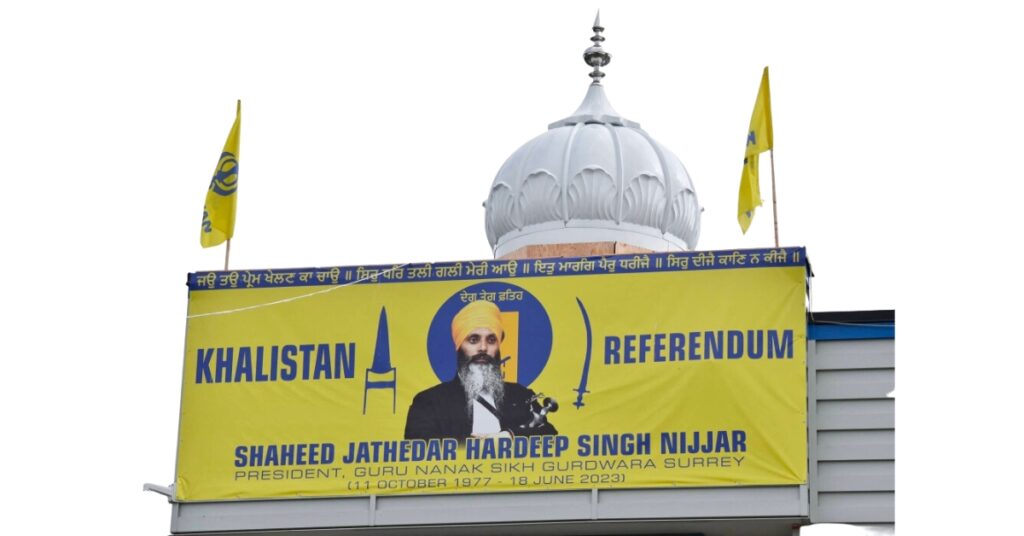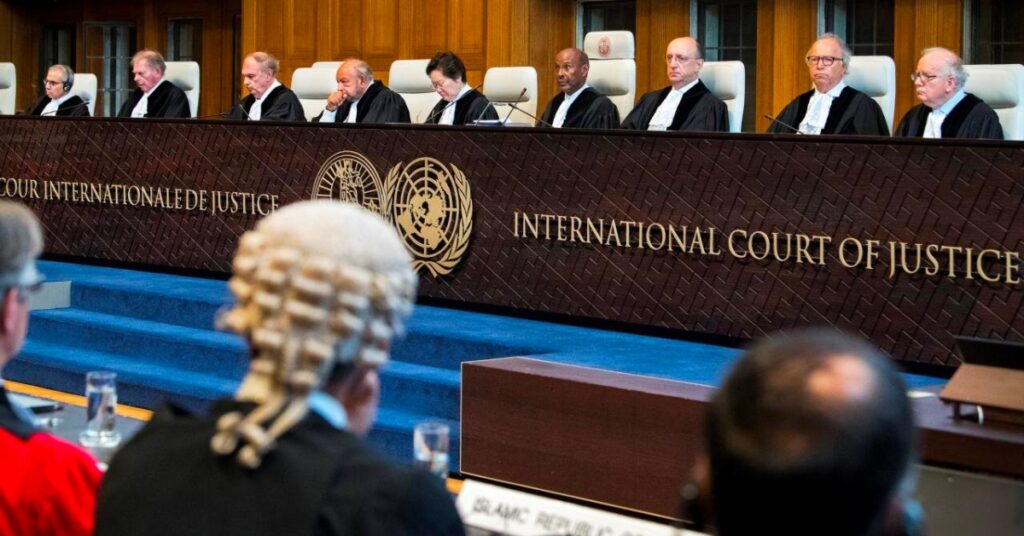Hardeep Singh Nijjar, a prominent Sikh leader, was killed in British Columbia on June 18th, 2023. It has raised serious questions about potential violations of international law on religious crime.
Contents
Canadian Prime Minister Justin Trudeau announced an investigation into the alleged involvement of the Indian government. It has ignited a contentious international dispute.
If the allegations are true, experts argue it could represent a grave breach of international and human rights law.
This article delves into the international legal implications of the case. Besides briefing about Hardeep Singh Nijaar, the article examines the possible violations and the recourse available to Canada.
Who Was Canadian Sikh Leader Hardeep Singh Nijjar?
The tensions between Canada and India stemming from the murder of Sikh leader Hardeep Singh Nijjar have shone a spotlight on the life and activities of this individual at the heart of the controversy.
Early Life and Immigration to Canada
Hardeep Singh Nijjar was born in the district of Jalandhar in the North Indian state of Punjab.
In 1997, he made a life-altering decision to immigrate to Canada, where he would eventually settle in British Columbia. He built a family in Canada, marrying and raising two sons while working as a plumber.
Advocate for Khalistan
In British Columbia, Nijjar gained recognition for his vocal advocacy of Khalistan, a proposed independent homeland for Sikhs. It represents a religious minority comprising 2% of India’s population.
This movement peaked in the 1980s and has long been a source of tension in the Canada-India relationship.
Nijjar’s support for Khalistan led to his being labeled a terrorist by India, with accusations including his alleged role as the “mastermind” behind the banned militant group, Khalistan Tiger Force (KTF), in India.
The Allegations and Warnings
While Canada had never charged Nijjar with any crimes related to terrorism, India had issued multiple allegations against him.
It included religious crimes in a 2007 cinema bombing in Punjab and the 2009 assassination of Sikh Indian politician Rulda Singh. In 2020, India’s National Investigation Agency offered a significant reward for any information regarding Nijjar’s activities, further escalating tensions.
Near his death in 2023, Nijjar had planned a non-binding referendum on Sikh independence in British Columbia, part of a global campaign led by the banned US-based group Sikhs for Justice. This campaign was a point of contention between Canada and India.
Legacy and Opinions
To his supporters, Hardeep Singh Nijjar was seen as a peaceful advocate for Sikh independence in British Columbia and a dedicated community member.
Following his death, a large memorial was established outside the Surrey Gurdwara, where he had served as president, and hundreds attended his funeral.
However, in India, he remained a wanted figure under India’s Terrorist Act, with allegations of involvement in terrorist activities.
Nijjar’s legacy is complex, reflecting the enduring tensions surrounding the Khalistan movement and the differing perspectives on his role within it.
The controversy surrounding Nijjar’s life and death underscores the intricate dynamics between the Sikh community, Indian politics, and Canada’s stance on the Khalistan movement.

It continues to shape international relations and legal discussions surrounding the case.
Violation of Sovereignty
Prime Minister Trudeau emphasized that any killing involving a foreign government on Canadian soil would breach Canada’s sovereignty.
This allegation would violate customary international law on religious crime if proven true. It prohibits one state from sending its agents onto the territory of another state without its consent.
This principle is fundamental to maintaining peaceful relations between nations. It includes non-interference in internal affairs and respecting national boundaries.
Violation of the UN Charter
The potential involvement of the Indian government in Nijjar’s killing could also be seen as a violation of the United Nations Charter.
The UN Charter stipulates that “all members shall refrain in their international relations from the threat or use of force against the territorial integrity or political independence of any state.”
Such a violation breaches international law and challenges the principles of peace and non-interference enshrined in the Charter.
Violation of International Human Rights Law
The killing of Hardeep Singh Nijjar could also be viewed as a violation of international human rights law.
Canada and India are parties to the International Covenant for Civil and Political Rights (ICCPR). It includes the “right to life” as one of its fundamental provisions.
An extrajudicial killing on foreign soil breaches international law and infringes upon the individual’s right to life as protected by the ICCPR.
Potential Defenses
Historically, countries have cited self-defense as a justification for targeted killings on foreign soil. However, legal experts argue that the circumstances surrounding Nijjar’s killing do not warrant such a defense.
Recourse Available to Canada
Canada has not definitively linked India to the killing but has indicated the possibility of involvement. Depending on the evidence that emerges, Canada could pursue several avenues of recourse:
International Court of Justice (ICJ)

If more definitive evidence is presented, Canada could bring the case to the ICJ, the UN’s primary judicial organ. However, this would require the consent of both parties. India may not agree to ICJ jurisdiction due to Commonwealth declarations.
International Human Rights Forum
Canada could seek a resolution through international human rights mechanisms. Given that the act breaches the ICCPR, it includes the UN Human Rights Committee.
Bilateral Engagement
Before resorting to international legal proceedings, Canada could directly talk with India to seek compensation or other reparations.
Domestic Recourse
Canada has domestic options, such as pursuing criminal responsibility for those directly involved in the killing and civil litigation against India.
Conclusion
The Hardeep Singh Nijjar Killing and the allegations of Indian government involvement have spotlighted the intersection of international law on religious crime, human rights, and sovereignty.
The coming days will likely reveal Canada’s response to this incident. It could have broader implications for how nations address violations of international law and human rights on foreign soil.
Regardless of the outcome, the case underscores the importance of upholding the principles of sovereignty and human rights in an interconnected world.
